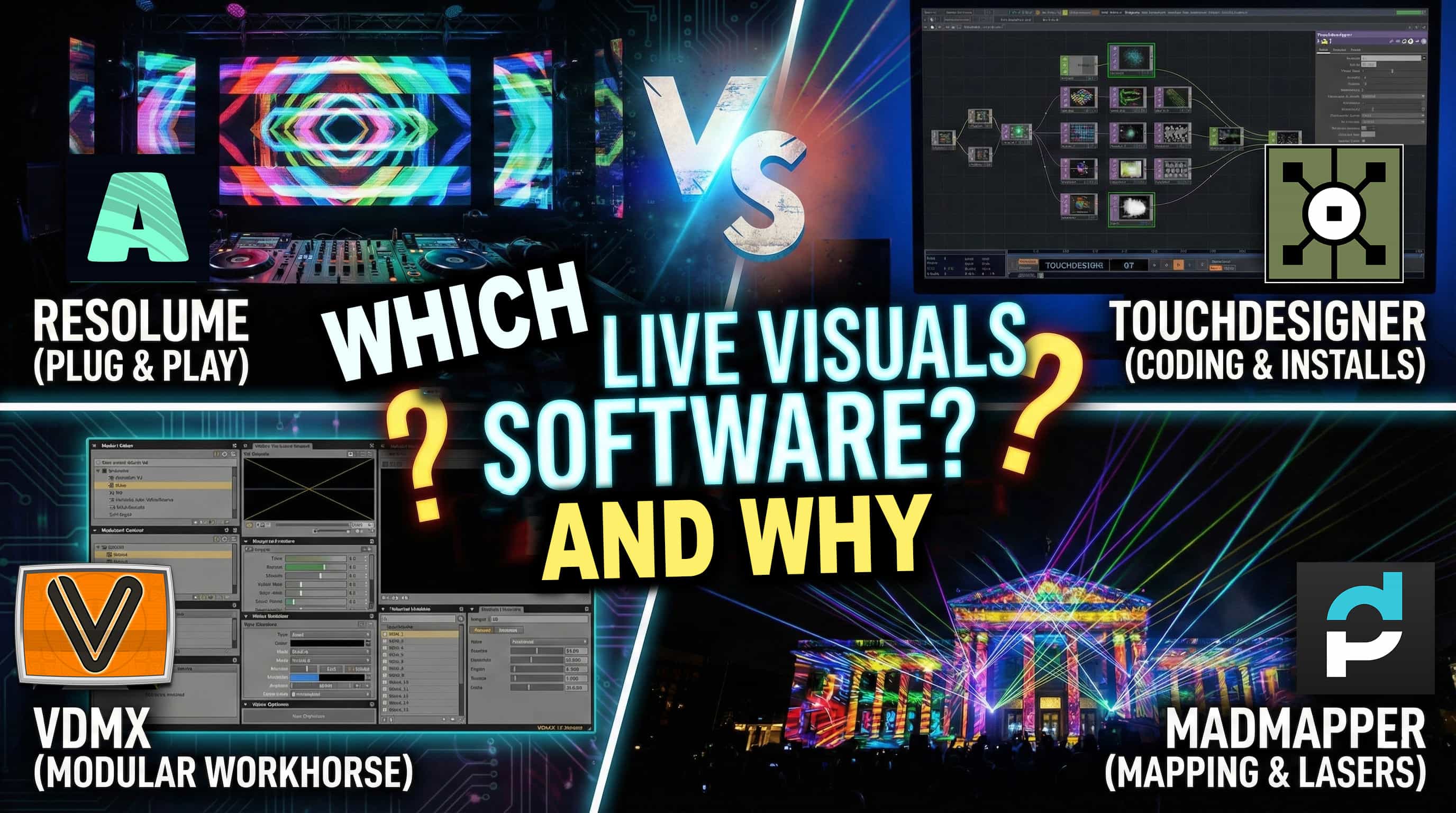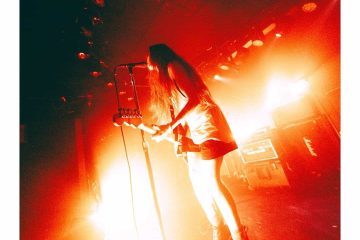
COVID stopped the show, And started it up again in a whole new way!
At the end of 2019, I set out to build a wireless camera mixing box for Machine Girl whom I was first introduced to in 2018 by the multi-talented Meg Fair.
With their voyeuristic, bold, and in your face style, I couldn’t help but to wonder what the point of view (POV) would be like at the end of their microphone.
The idea turned to reality, and better than I expected after googling for prototyping options.
Drone POV cameras!!! Low voltage power, easy to set up, low cost, simple to configure, 2-day shipping replaceable, and sold around the world! ← This way they could replace a camera if one breaks on tour.



Being that I’m a self-described old man, I needed a setup they could take with them on the road, and control on their own. So it all switches with a single Arcade button 🙂
One of the most life-changing purchases occurred during this project. I bought a 3D printer! (Ender 3 Pro to be specific) After a few upgrades like the TH3D EzABL, an OctoPi setup, and some mylar I was ready for rapid prototyping that has extended far beyond this project alone. When something breaks and I print a new part to fix it, I find it hard to imagine how I was living before owning a 3D printer.
(Note: I believe theirs enough plastic waste in this world, so I try to only print for projects, to fix something, or up-cycle. I’m not printing toys or 2’ tall waste baskets for the fun of it.)
18650 became my battery of choice, and I used some 18650 to 5V USB battery holders I had lying around. I soldered out the USB ports, added JST connectors, but left the internal lipo protection chipset inside. This way the setup could be durable, replaceable, and hopefully not explode during a machine Girl set (This is definitely possible, but I have warned them about the dangers of lithium ion batteries being submerged in theatrical stage blood :).
The video switcher uses a LED arcade button to switch between the feeds. The case ( a recycled DeWalt tool case found at my local Creative Reuse) has Nutek HDMI chassis connectors which should snap the cable before the connector. I 3D printed TPU dust plugs for just about everything, and added an HDMI transmitter so I could send a signal from a laptop, raspberry pi, another camera, etc. into the 5.8 GHz feed. When switching in between multiple cameras the signal can blend & merge — distort & bleed. It’s really cool, even when there’s just static with interference. Your cell phone could tip it off. And when sending strobing VJ content through the box, the effect on the feed is awesome.
The original debut of the video switcher was March 14, 2020, but COVID-19 stopped the show. But on October 31st, 2020 the box debuted during Machine Girl’s opening performance for Code Orange’s Back Inside The Glass live streamed concert — and it was AWESOME!!!
Here’s a video rundown:
What’s even cooler; the time between March 14th and Halloween 2020 gave me the opportunity to work with Code Orange directly to help bring their vision for Back Inside the Glass to life. More on that in a future blog post.
A Nerd Notes:
- Circuit Bending. The box also gets around an old Circuit Bending issue with newer projectors and devices losing signal or sync with the analog feed. By throwing the signal over 5.8GHz and then out of a dedicated box with HDMI. As long as there is a signal and the power is on, the Projector doesn’t search for a new signal. Worst case, even in a mishap, will cause the HDMI receiver to output a “No Signal” blue screen (which I’m hoping to replace with something else soon!).
- Fake 18650 Batteries. A good way to tell if 18650 batteries are fake is to weigh them. Sadly, many “premium brand” 18650 batteries are knock offs.
- The cameras have a mW setting. I found that the default (200 mW) was unnecessary unless you are flying the camera a hundred meters away. (Reducing this power consumption is easier on the battery and reduces the overall heat from the camera).


















